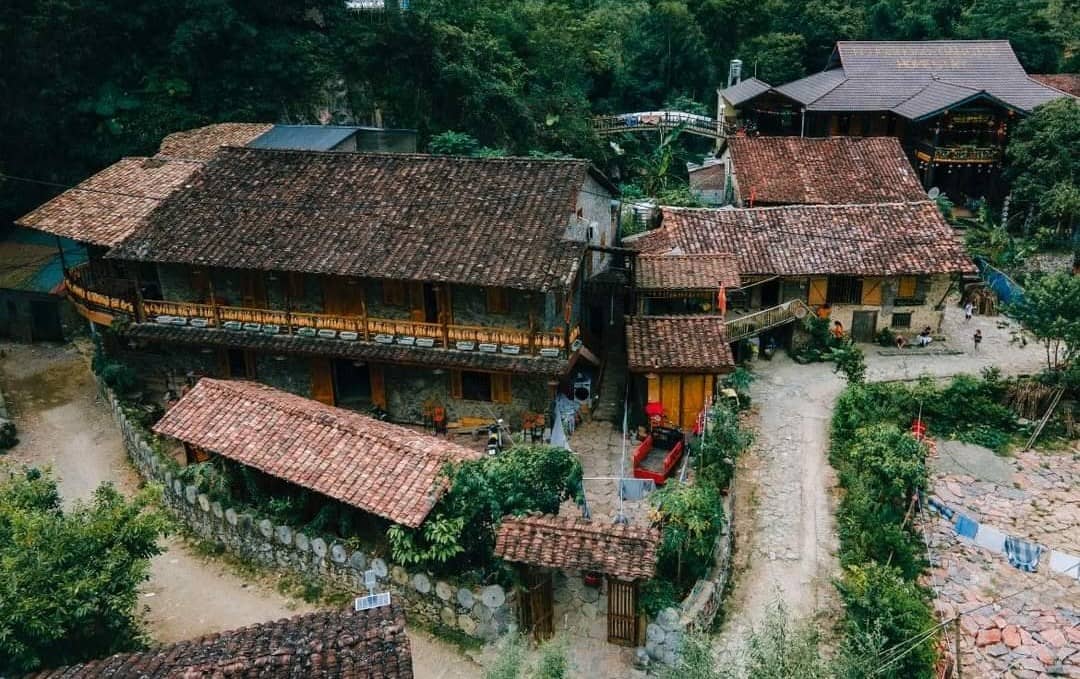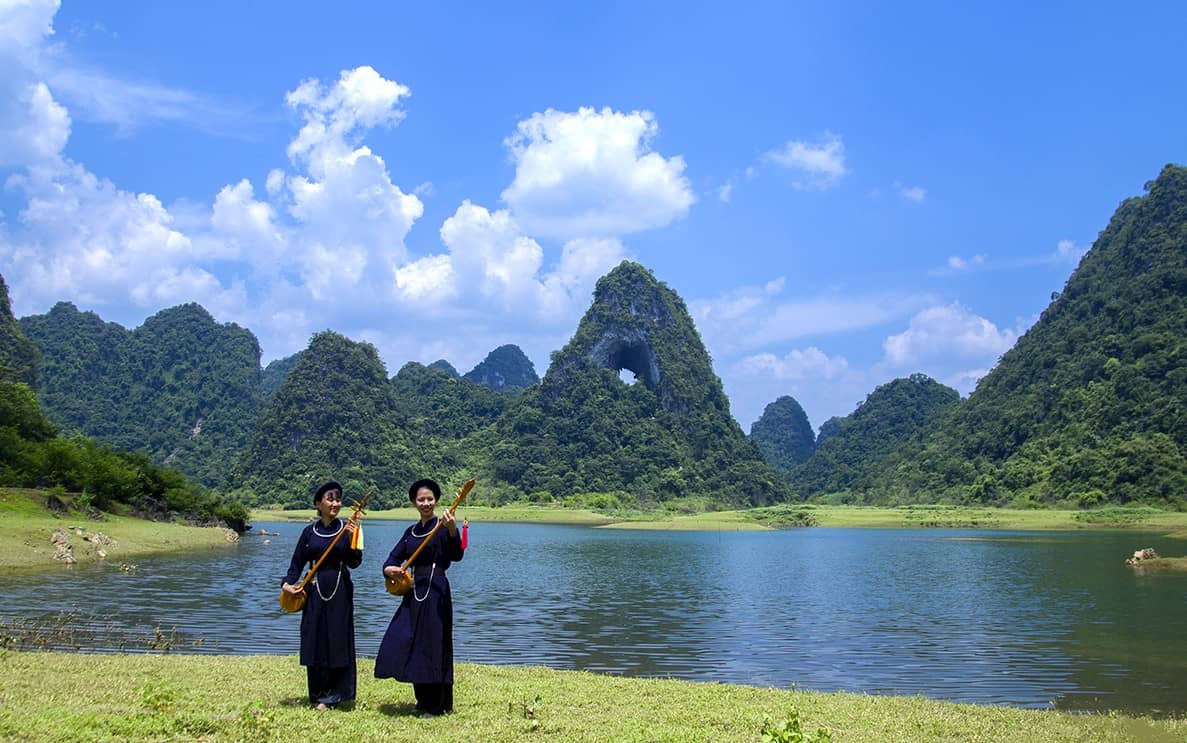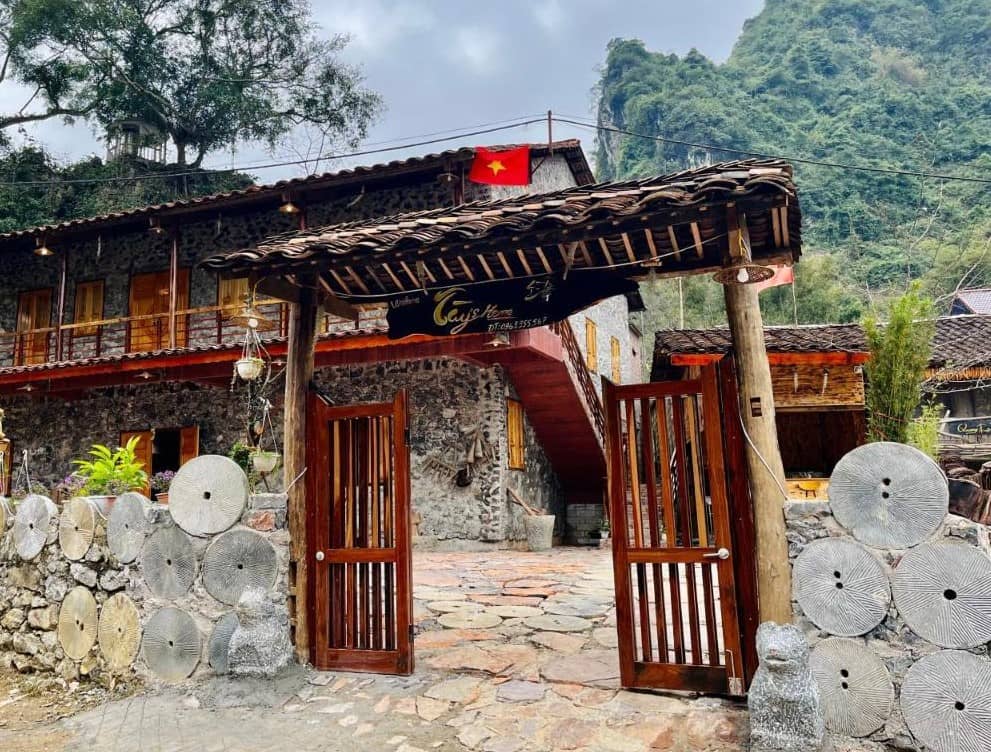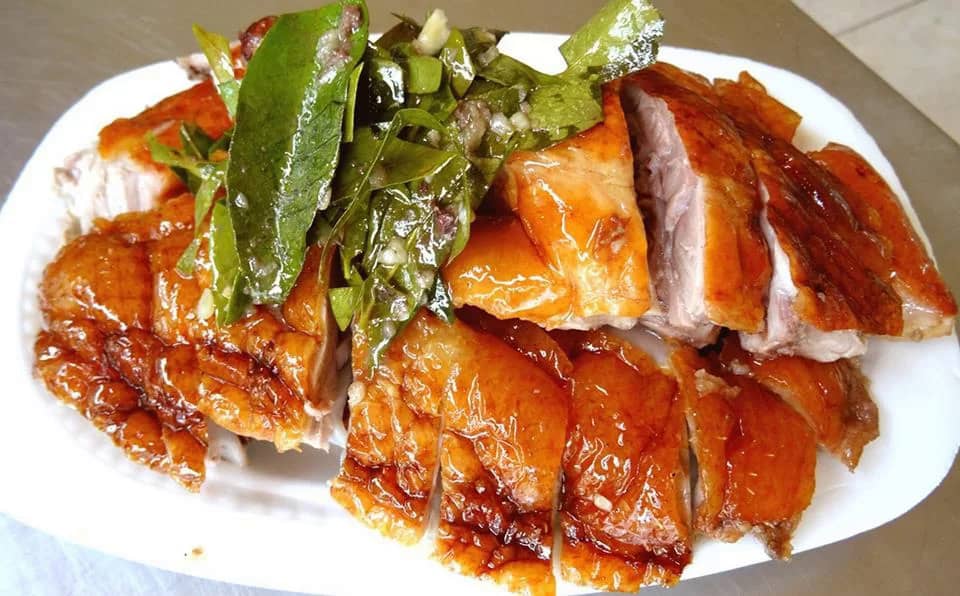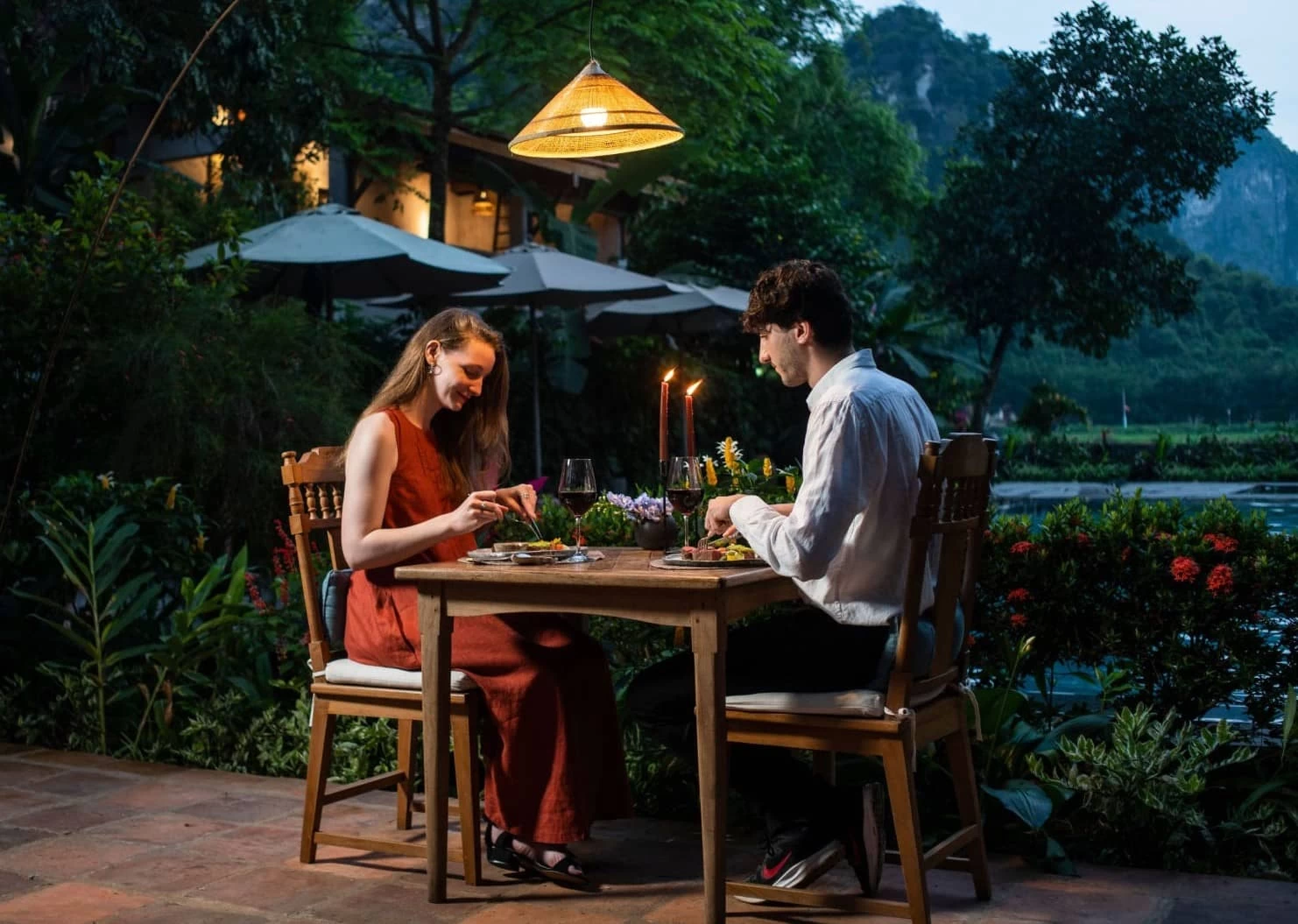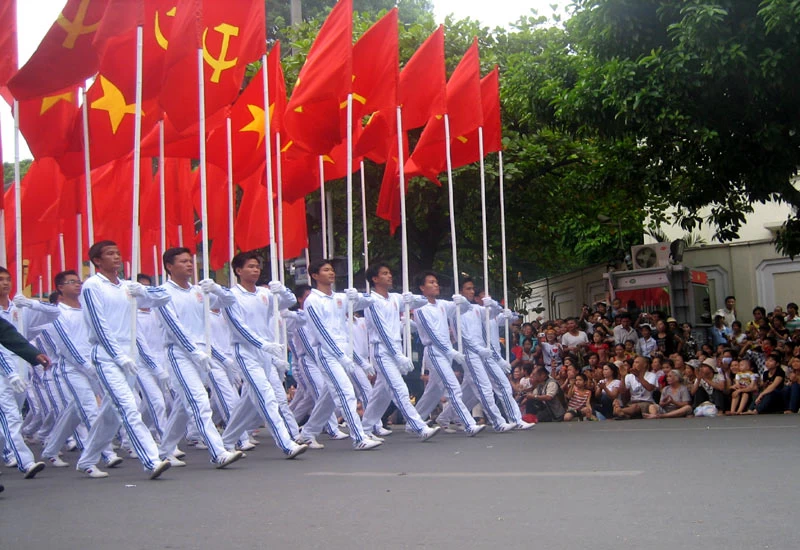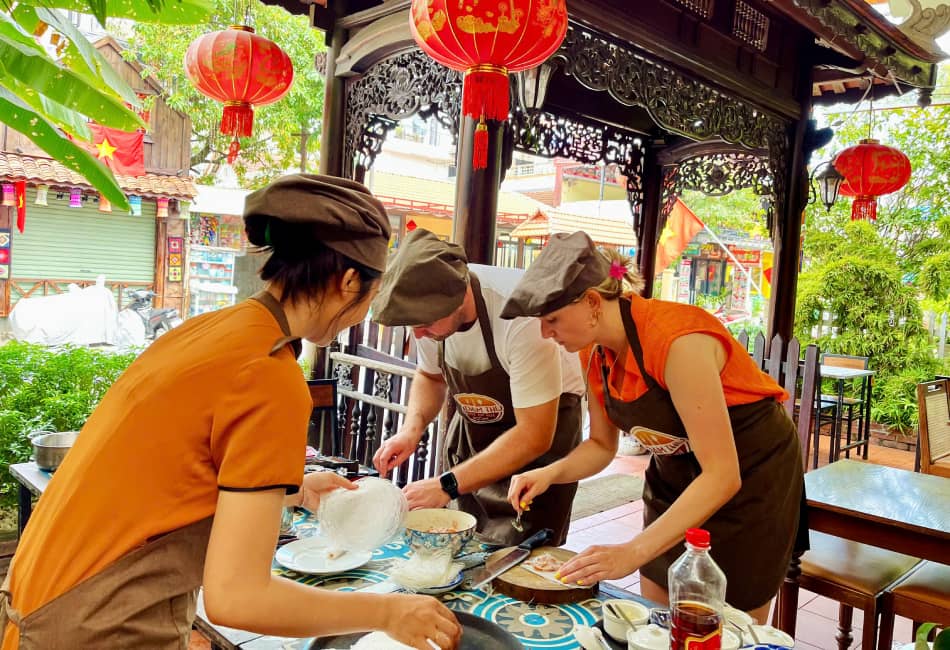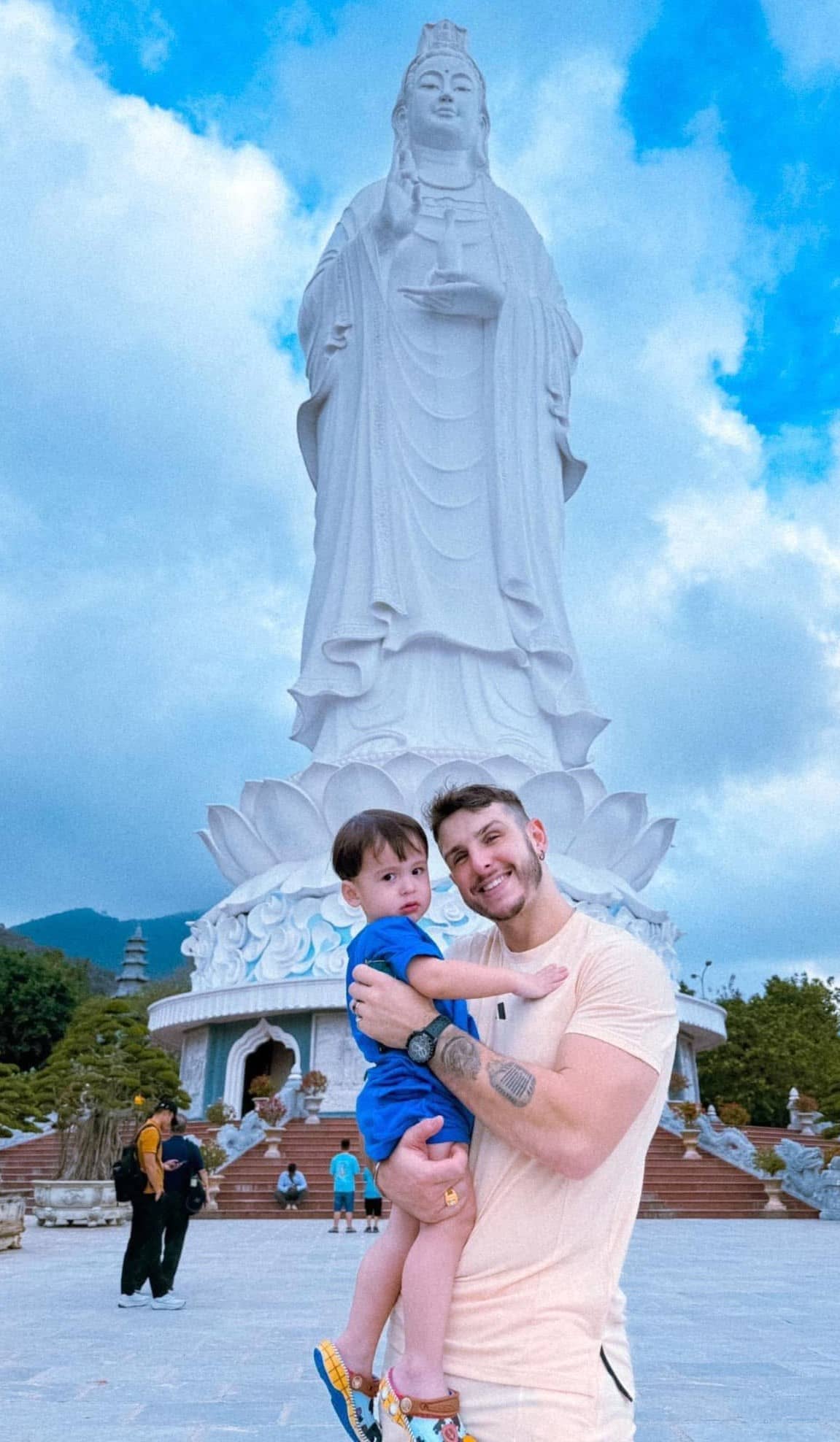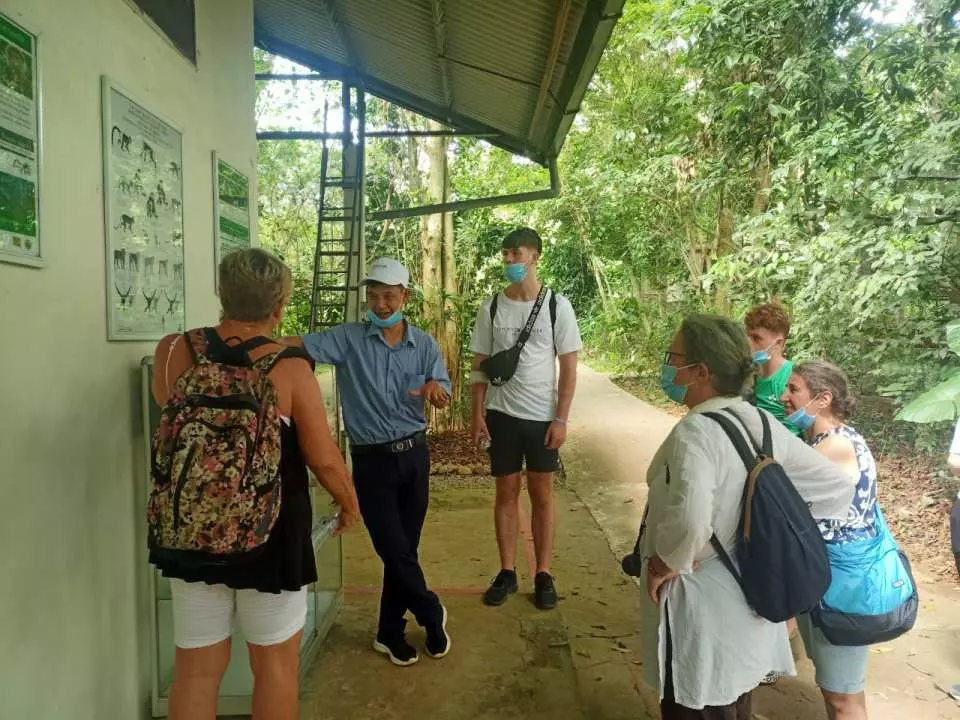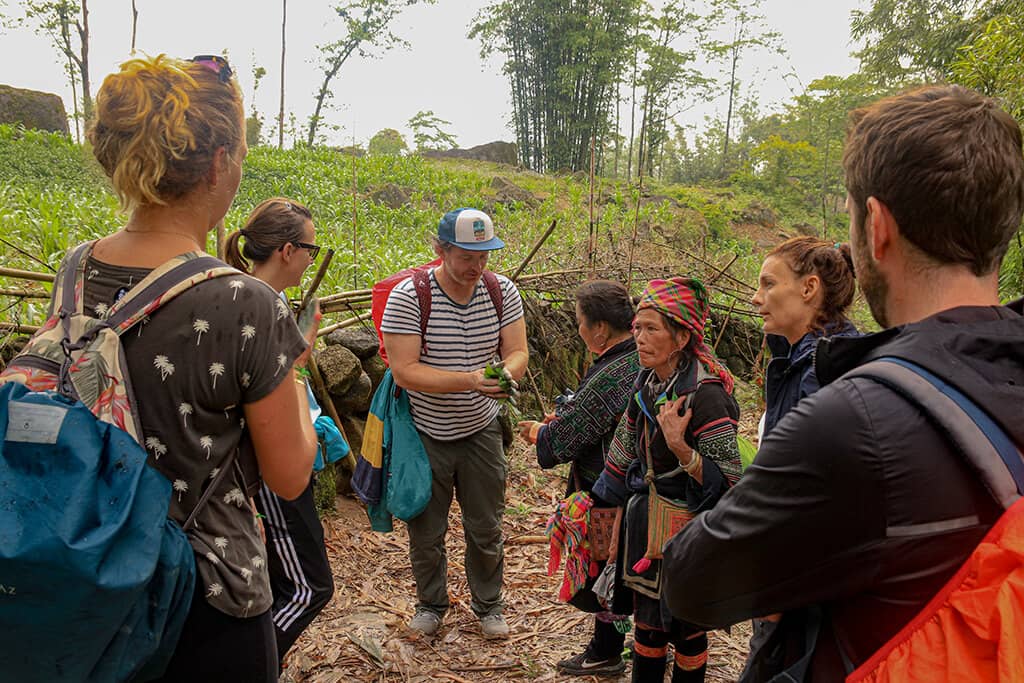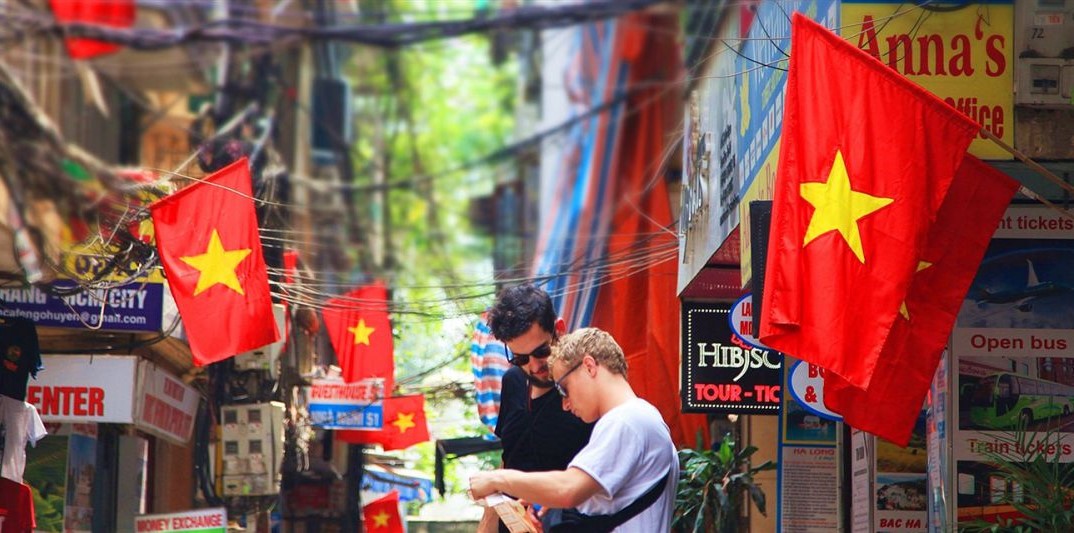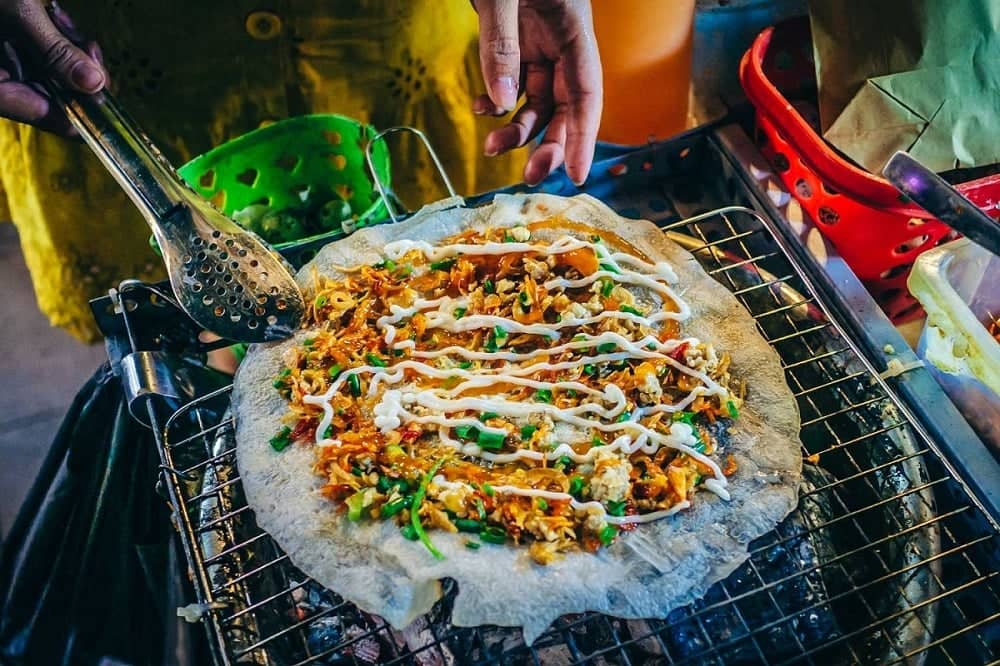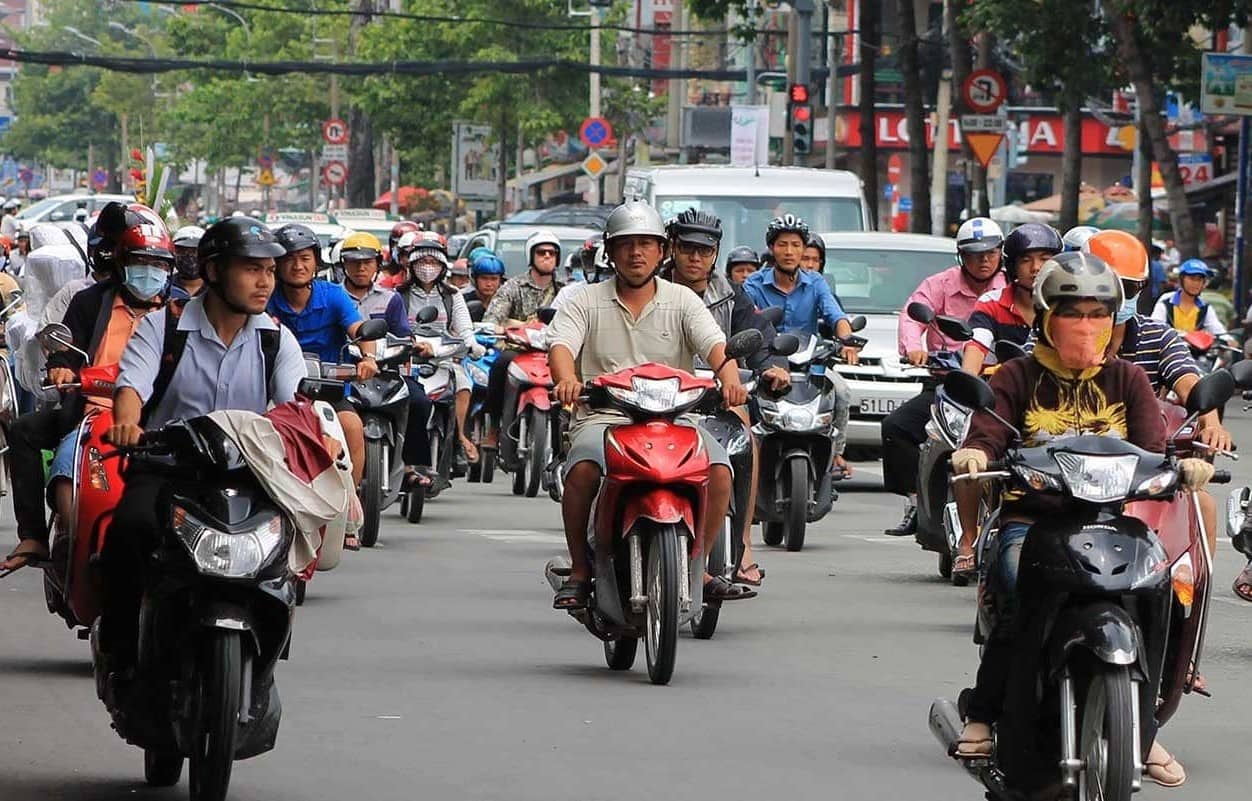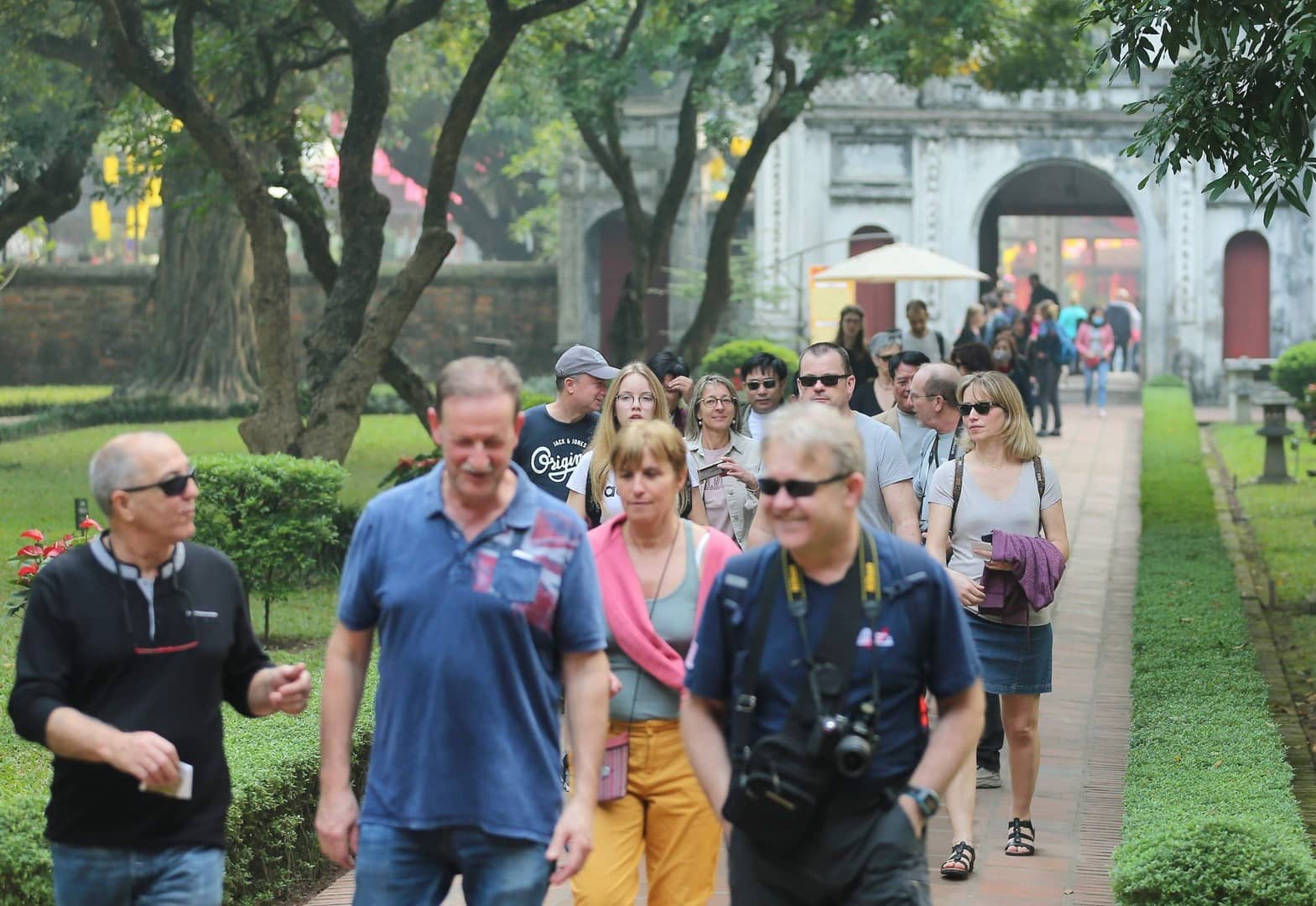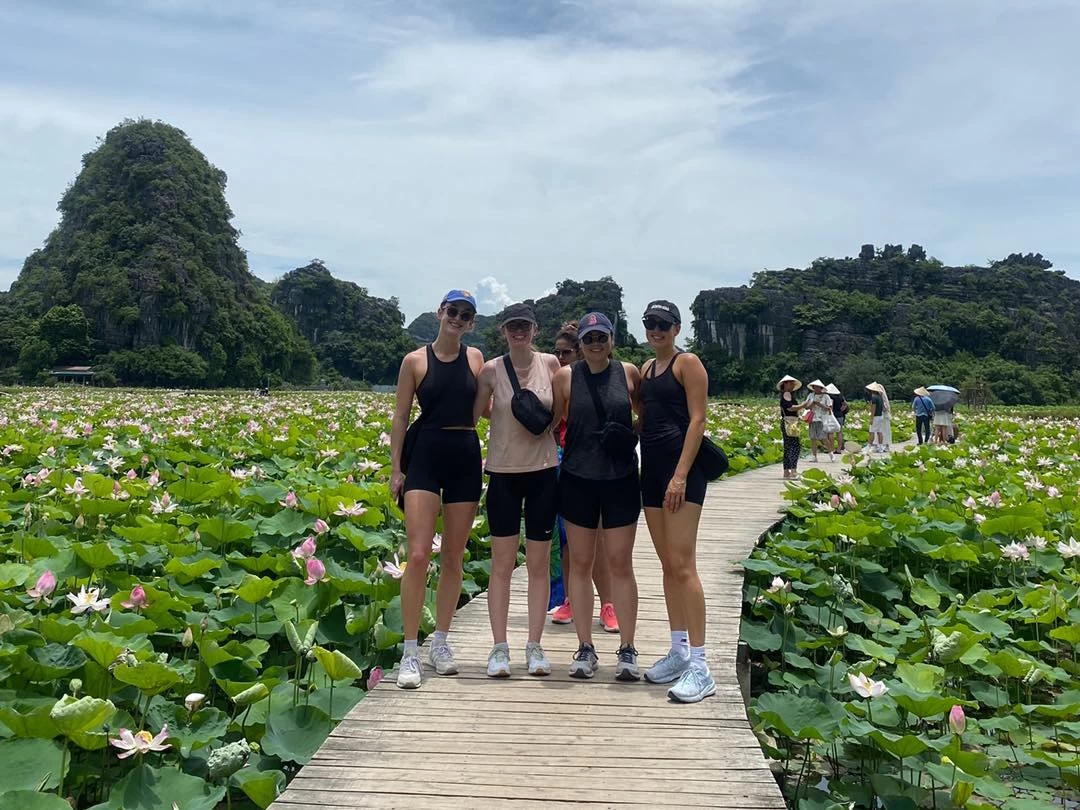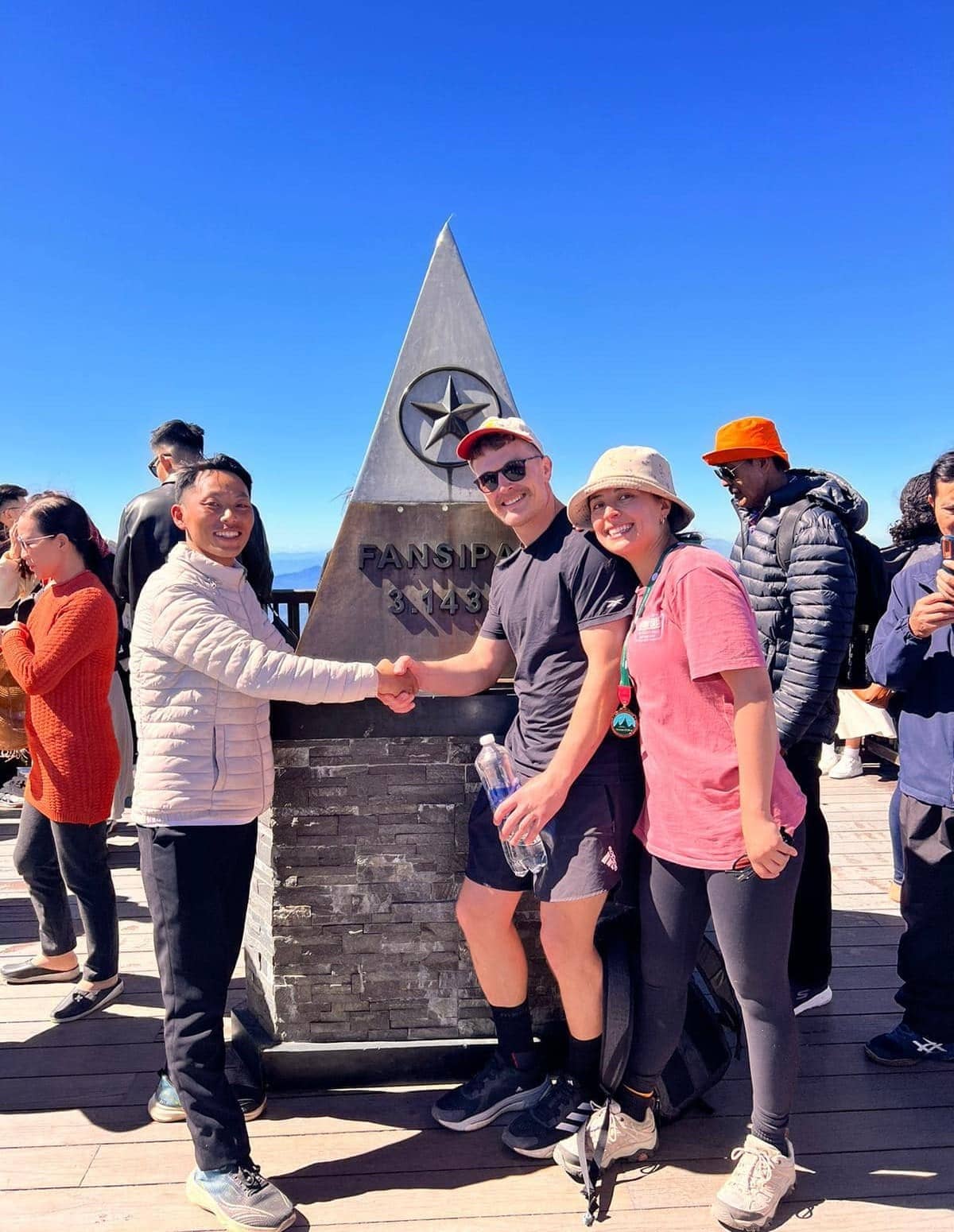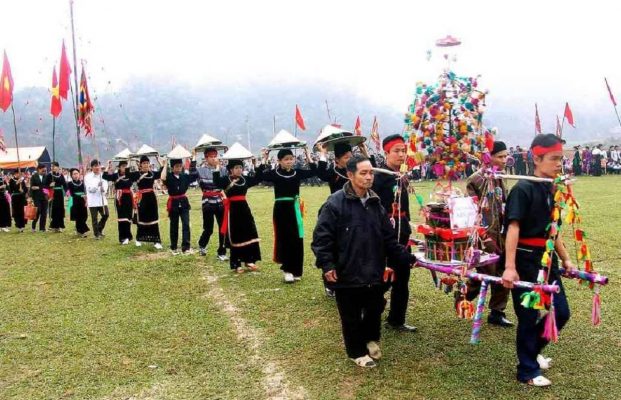
The Long Tong festival
The Long Tong Festival, also known as the “down to the field” festival, is an important ritual at the beginning of the new year for the Tay and Nung ethnic groups. This festival involves offerings to the God of agriculture deity in hopes of ensuring a fruitful harvest, abundant livestock, and lush vegetation. Additionally, the wish for peace and prosperity for all villagers is expressed.
I. Introduction to the Long Tong Festival
1. Origin of Long Tong festival
Numerous tales recount the origins of the Long Tong festival, each deeply rooted in local lore and tradition. For instance, the “Story of the Falling Rain Waterfall” hails from the annals of the Chiem Hoa district, but variations abound across different locales, each narrative intricately woven with characters integral to the fabric of community life.
These figures may have served as guardians of villagers or custodians of crops, their passing elevating them to the status of revered deities worshipped by indigenous communities. These narratives imbue the Long Tong festival with a sacred aura, prompting observances of worship at communal houses, temples, and shrines. Across diverse regions, the Tay people pay homage to various gods, united in collective reverence.
Some locales venerate celestial beings and earth deities, while others extol human figures turned divine. Yet, all these deities share a common purpose—to bestow upon the Tay people blessings of abundance, serenity, joy, and bountiful harvests.
2. Significance of the Long Tong Festival
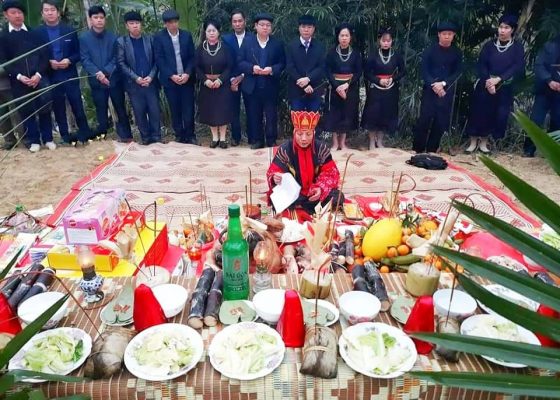
Good luck ritual during the Long Tong festival
The essence of the festival lies in its profound significance: a time to beseech for fortune, rainfall, and the harmonious balance of yin and yang, fostering the proliferation of life among animals. It serves as a poignant expression of each individual’s aspirations for prosperity and joy.
Moreover, the festival serves as a nexus for convergence, cultural interchange, and emotional communion, fostering greater religious comprehension and solidarity among diverse communities.
Through the festival, we aspire to fulfill the populace’s yearning for cultural and spiritual fulfillment, kindling a sense of pride in our national heritage. It provides a fertile ground for the cultivation of cultural activities, artistic expressions, and traditional games, thereby nurturing the evolution of our clans and communities.
3. Long Tong Festival Dates and Locations
Long Tong Festival, also known as the “Festival of Going to the Fields,” is an important traditional event of the Tay ethnic group in Northern Vietnam. It is celebrated at the beginning of the lunar new year, typically between the 4th and 10th days of the first lunar month.
The festival is primarily celebrated in the northern mountainous regions of Vietnam, with key locations including:
- Tuyen Quang: Known for its picturesque landscapes and rich cultural heritage.
- Bac Kan: Home to stunning natural wonders like Ba Be Lake, where the festival is often held.
- Cao Bang: A province famous for its ethnic diversity and breathtaking scenery.
These regions are not only the heart of the Long Tong Festival but also offer travelers a chance to explore Vietnam’s stunning highlands and immerse themselves in local traditions.
Learn more about: Ha Giang to Cao Bang Tour
II. Why Should Tourists Visit Long Tong Festival?
1. Experience Unique Culture
Long Tong Festival is one of the most important festivals of the Tay ethnic group, held at the beginning of the lunar new year in northern mountainous provinces of Vietnam such as Tuyen Quang, Bac Kan, and Cao Bang. This is not only an occasion for locals to pray for favorable weather and a bountiful harvest but also a great opportunity for international visitors to explore the beauty of traditional culture.
Discover the Customs and Traditions of the Tay People
By participating in the Long Tong Festival, visitors can witness solemn rituals such as the water procession, the worship ceremony, and the symbolic seed-sowing ceremony representing growth and prosperity. Locals wear traditional costumes with distinctive patterns, creating a vibrant cultural tapestry. This is a rare chance to learn about the spiritual beliefs, farming customs, and way of life of the Tay people.
2. Participate in Traditional Activities
Beyond its spiritual significance, the Long Tong Festival is also a time for communities to engage in folk games and enjoy unique artistic performances.
Experience Traditional Rituals and Folk Games Firsthand
- Seed-Sowing Ceremony: One of the most crucial parts of the festival, symbolizing the beginning of a new crop season and prayers for abundant harvests.
- Dan Yen Game: A unique traditional game of the Tay people, symbolizing unity and good fortune.
- Throwing Shuttlecock (Nem Con): A popular folk game in northern mountain festivals, fostering community bonds.
- Tug-of-War and Stick-Pushing: Traditional folk games that not only promote physical strength but also create a lively and joyful atmosphere.
- Then Singing and Tinh Guitar Performances: Traditional Tay folk music that conveys optimism and faith in life, performed throughout the festival.
3. A Chance to Enjoy Traditional Cuisine
The festival is also an opportunity for visitors to taste local specialties such as black sticky rice cake, five-colored sticky rice, smoked sausages, and Thang Co. Each dish carries a unique flavor and showcases the culinary sophistication of the Tay ethnic group.
4. A Vibrant and Impressive Festival Setting
The Long Tong Festival is typically held in vast open fields, surrounded by the majestic natural scenery of northern Vietnam. This is an ideal time for visitors to immerse themselves in the lively festival atmosphere, enjoy the breathtaking landscapes, and capture unforgettable moments.
III. Special Features of the Long Tong Festival
Cultural festivals in Vietnam are distinguished by their ceremonial and organized activities.
1. Ceremonial Section
The Long Tong Festival is a significant traditional event for the local people, meticulously organized in vast fields to pray to the “Thần Nông” (god of agriculture) and other deities for blessings and a prosperous harvest in the new year. The festival includes rituals such as offering incense and paying respects to the deities, demonstrating the villagers’ reverence.
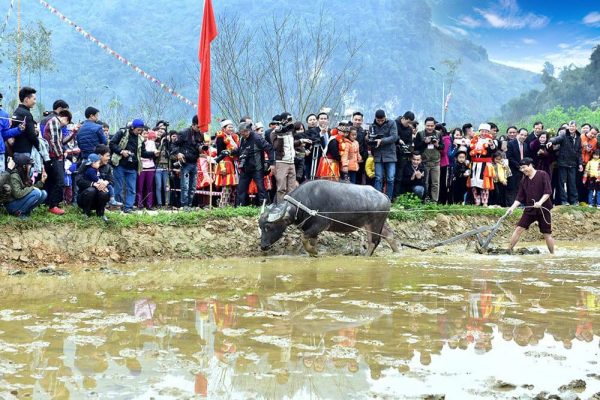
the ritual of down to the field in Long Tong festival
During the ritual of “down to the field,” robust and virtuous men, skilled in farming, accompanied by the strongest buffaloes, are chosen to plow the first furrows for the new crop season. This selection symbolizes the auspicious start of a productive rice cultivation season.
2. Festival Section
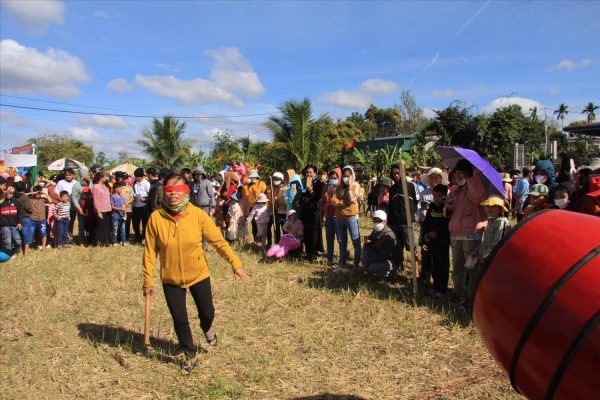
Festival Section in the Long Tong festival
After the main ceremonial section in the fields, the Long Tong Festival transitions into a lively fair featuring various traditional games and activities. These activities showcase the unique cultural traits of the Tay and Nung ethnic groups, including spinning tops, tug-of-war, swings, lion dances, martial arts performances, and traditional singing and dancing.
One of the most amusing games is spinning tops, which attracts both locals and foreign tourists. According to folk beliefs, successfully spinning a colorful top through a heart-shaped target brings luck and prosperity to the village in the new year.
Young Tay and Nung men and women also participate in tug-of-war competitions or showcase their skills in traditional singing. All these activities contribute to creating a lively and vibrant atmosphere.
IV. Traditional Rituals of the Long Tong Festival
1. Procession of the Agricultural God
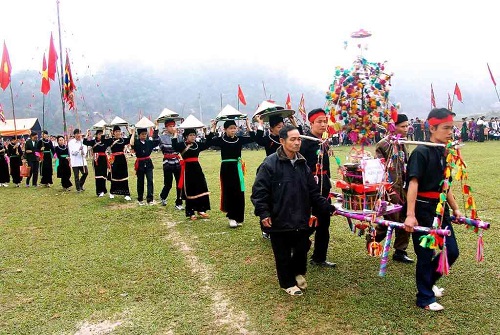
Procession of the Agricultural God
The Procession of the Agricultural God is an indispensable ritual in the Long Tong Festival, demonstrating the people’s reverence for the deity who governs agriculture. According to folk beliefs, the agricultural god is the deity who brings favorable weather, ensuring prosperous crops and a prosperous life for the people.
- Preparation of offerings: The offerings to the Agricultural God typically include local specialties such as sticky rice, pork, fruits, traditional cakes, and corn wine. These offerings are meticulously prepared, reflecting the people’s respect and gratitude.
- Procession ritual: The procession includes the chief officiant, village elders, and villagers dressed in traditional attire. They move from the village communal house to the fields, singing ancient songs along the way, creating a sacred and solemn atmosphere.
- Spiritual significance: The Procession of the Agricultural God is not only a ritual to pray for favorable weather but also an occasion for people to express their wishes for a peaceful and happy new year.
2. First Plowing Ceremony
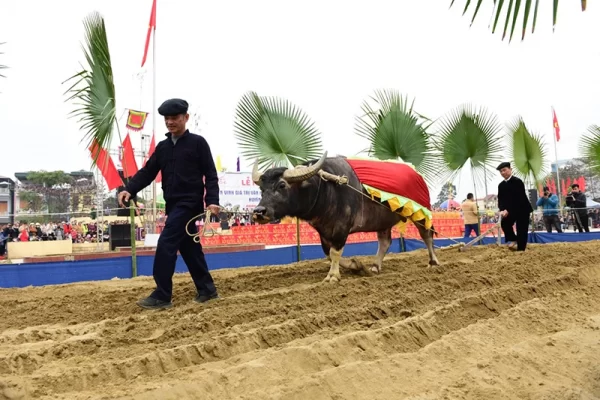
First Plowing Ceremony
The First Plowing Ceremony is a symbolic ritual marking the start of a new farming year. This ritual reflects the deep connection between people and the land, as well as a prayer for a bountiful harvest.
- Plowing ritual: A respected man in the village is chosen to perform the plowing ritual. Dressed in traditional attire, he holds a plow and guides the buffalo to make the first furrows in the field. The straight and even furrows symbolize smoothness and success in the new year.
- Community participation: After the plowing ritual, villagers join in and begin their farming work. This is an opportunity for everyone to work together, sharing joy and hope for a fruitful harvest.
- Cultural significance: The First Plowing Ceremony is not only an agricultural ritual but also a cultural beauty, reflecting the spirit of unity and the community’s attachment to traditional farming.
V. Activities of the Long Tong Festival
1. Ném Còn (Throwing Balls)
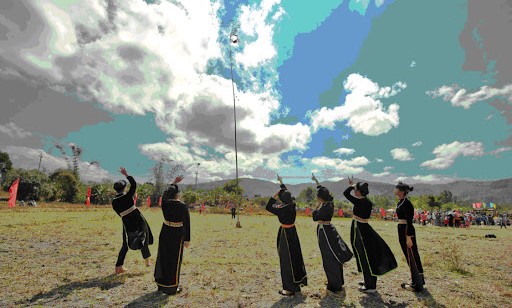
Ném Còn is a game that often appears in festivals.
Ném Còn is one of the most anticipated activities of the Long Tong Festival. Participants throw a colorful fabric ball, known as “còn,” through a ring placed high on a pole. This game is not just for entertainment but also holds spiritual significance, symbolizing the wish for a prosperous harvest and good luck for the new year. According to Tày beliefs, successfully throwing the ball through the ring signifies a year filled with happiness, good weather, and bountiful crops.
The game is played by both men and women, often accompanied by cheerful cheers and music. The con ball itself is beautifully decorated, with colorful tassels representing vitality and fortune. Tourists visiting the festival can participate in this activity, experiencing firsthand the traditional customs of the Tày people.
2. Tug of War
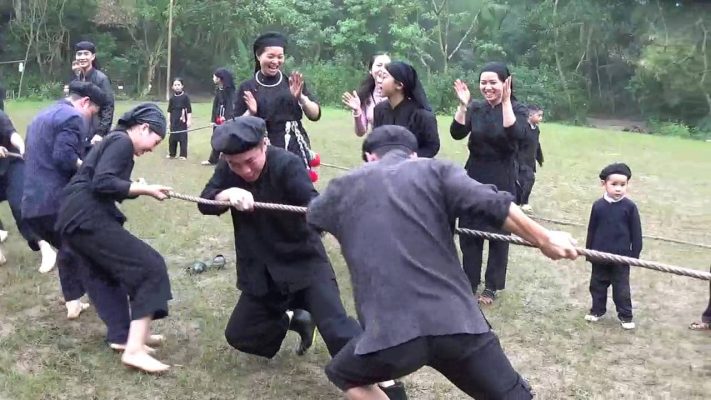
Tug of War is a game of strength and unity.
Tug of War is another exciting highlight of the festival, emphasizing teamwork, determination, and strength. This traditional tug-of-war competition is more than just a sport; it represents the unity and resilience of the Tày community. Participants, divided into two teams, pull a thick rope in opposite directions, striving to overpower their opponents.
In the cultural context of the Long Tong Festival, Tug of War symbolizes the harmony between humans and nature, as well as the collective effort needed to ensure a prosperous agricultural season. It is believed that the winning team will bring good fortune to their village. This activity attracts not only locals but also visitors eager to immerse themselves in the dynamic and competitive spirit of the event.
You might be like: Hanoi to Cao Bang Tour 3D2N
3. Bamboo Dance and Then Singing
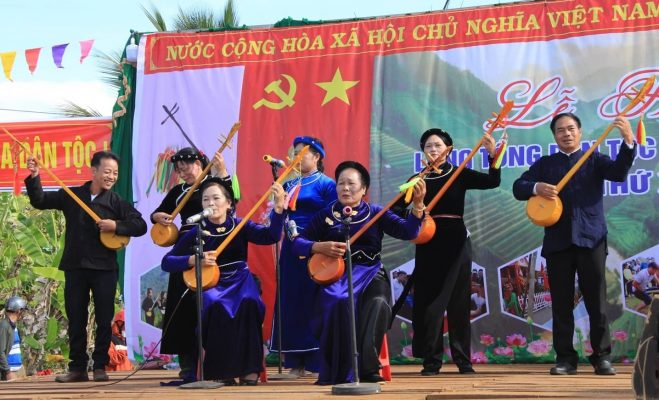
Then Singing is a typical art form of the Tay people.
No traditional festival of the Tay people would be complete without folk performances, and Long Tong Festival is no exception.
- Bamboo Dance: This lively dance involves participants stepping rhythmically between two long bamboo sticks that are continuously clapped together in time with the music. Dancers must be quick and precise to avoid getting their feet caught. The múa sạp performance embodies the joyful spirit of the festival, bringing people together in a shared celebration of movement and music.
- Then Singing: Then singing is a sacred form of Tày folk music, often performed by male or female “Then” singers, who are considered intermediaries between the human world and the spiritual realm. Accompanied by the đàn tính (a traditional lute), hát Then tells stories of gods, ancestors, and daily life. It is believed that the melodies can bring blessings, drive away bad luck, and ensure a year of good harvests.
4. Explore Local Cuisine
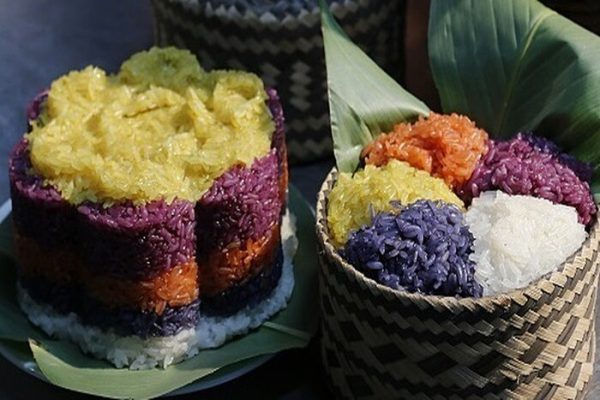
Five-color sticky rice is present in most important events of the highland people.
Five-color sticky rice is an essential dish at the Long Tong Festival. This dish is made from glutinous rice, dyed with natural colors from leaves such as magenta plant, ginger leaves, turmeric, and pandan leaves. Each color represents the five elements: green, red, purple, yellow, and white, symbolizing harmony, luck, and prosperity. The sticky rice is fragrant, soft, and often offered to ancestors and enjoyed during the festival.
Roasted pork is a flavorful dish that embodies the essence of the mountainous region. The pork is carefully selected, marinated with unique spices like mắc khén and hạt dổi, then roasted over charcoal until the skin is crispy and the meat is tender and sweet. This dish not only symbolizes abundance but also expresses reverence to the deities, praying for a bountiful harvest.
Corn wine is a traditional drink of the highland ethnic communities. Made from sticky corn and fermented with natural yeast, the wine has a rich and aromatic flavor. During the Long Tong Festival, corn wine is served to guests, showcasing the solidarity and hospitality of the local people.
Read more: Cao Bang Cuisine
VI. Travel Tips for Attending Long Tong Festival
1. How to Get to Long Tong Festival
From Hanoi:
- By bus: The journey takes approximately 4-6 hours. You can catch a bus from My Dinh or Gia Lam bus stations to Bac Kan or other northern provinces where the festival is held.
- By motorbike: Adventurous travelers can ride a motorbike, enjoying the scenic mountain roads. However, be prepared for winding and steep routes.
- By private car: Renting a car with a driver is a comfortable option, especially for groups. This allows flexibility in travel time and stops along the way.
2. Best Time to Visit Long Tong Festival
The festival usually takes place in January or February (Lunar Calendar), marking the beginning of the agricultural season.
3. Weather and Appropriate Clothing
The Long Tong Festival is usually held at the beginning of the Lunar New Year (around January to March of the lunar calendar), when the weather in the northern mountains is still quite cold and drizzly.
Clothing:
- Bring warm clothes, windbreakers, or sweaters to stay warm.
- Choose comfortable sports shoes or hiking shoes with good grip, as the festival often takes place in hilly or terraced field areas.
- If it’s sunny, don’t forget to bring a hat, sunglasses, and sunscreen.
Backup Items:
- Carry a lightweight umbrella or raincoat in case of sudden weather changes.
- Prepare a small bag for personal items like tissues, water, and necessary medications.
In conclusion, the Long Tong Festival is not only a unique cultural event but also an opportunity for visitors to explore the traditional values of the Tay and Nung ethnic communities in the northern mountainous regions of Vietnam. With its sacred rituals, lively activities, and diverse cuisine, the festival offers a deeply immersive cultural experience, promising to leave an unforgettable impression on every traveler.
If you are seeking a journey to discover unique cultural heritage, the Long Tong Festival is the perfect choice. Don’t hesitate to book a tour or plan your visit to the festival to ensure you don’t miss out on one of Vietnam’s most distinctive traditional cultural experiences. Take action now, immerse yourself in the festive atmosphere, and create lasting memories!
See more: Cao Bang Travel Tips



